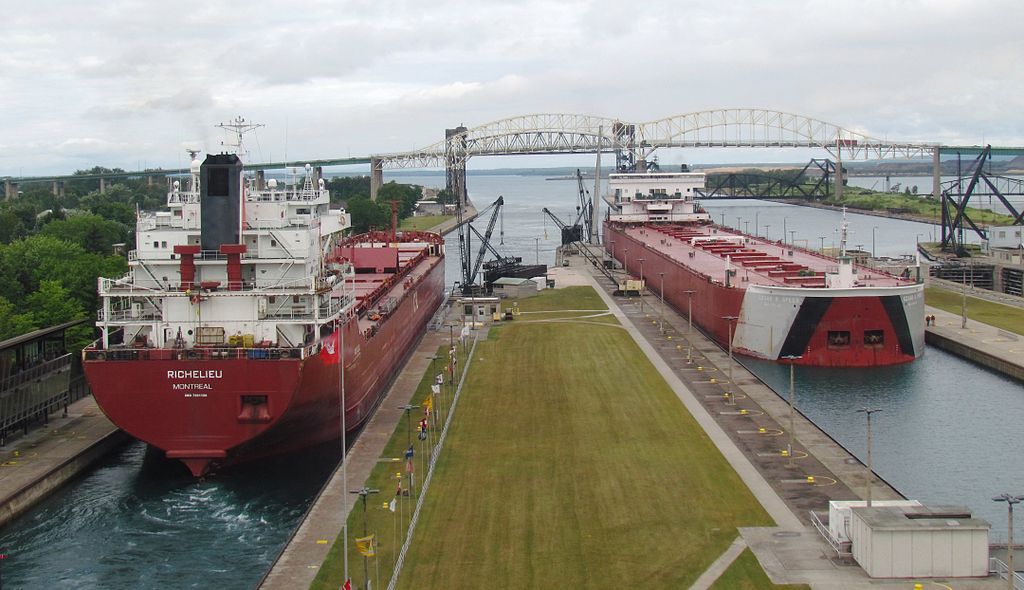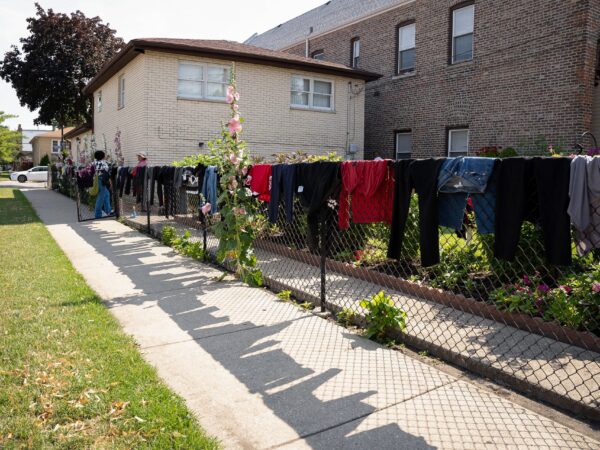
Reliance on the private sector would be a “nightmare”
Representatives of the Great Lakes states ratcheted up the pressure for a new Soo Lock this week as the group kicked off its annual meeting in Duluth, MN.
The Great Lakes Commission announced its support for federal legislation – the Soo Locks Modernization Act – that would authorize congress to fund a new lock at Sault St. Marie. The proposed lock would handle the largest lake freighters that carry most of the iron ore needed for steel production in the U.S.
Currently only the rebuilt 50-year-old Poe Lock is capable of handling lake freighters of the size that carry 85 per cent of the freight that passes through the locks, according to a commission press release.
A Department of Homeland Security report states that an unanticipated disruption of the lock could have a serious negative economic impact on steel and auto production that could trigger a recession.
In a letter to the Great Lakes congressional delegation, commission chair Jon Allan expressed the group’s “wholehearted support” for the legislation citing its economic and national security benefits.
Allan said planning for a new lock has been in process for thirty years and one is on a list of projects developed by the U.S. Treasury Department that are of “major economic significance to the nation.” The Treasury report said the economic benefit resulting from the new lock could be as high as $1.7 billion.
The cost of the lock is estimated at $600 million.

Rick Nolan, U.S. House of Representatives
from Minnesota’s 8th district, courtesy of nolan.house.gov
U.S. House Rep. Richard Nolan from Minnesota said in the press release that Minnesota industries ship and receive “billions of dollars” of products every year through the locks and only the Poe Lock “can accommodate the 1,000-foot Lakers that carry the Iron Range taconite.”
Nolan is one of 13 co-sponsors of the House version of the bill introduced by Rep. Jack Bergman of Michigan. Sen. Debbie Stabenow from Michigan sponsored the senate version.
Nolan spokesperson Steve Johnson told Great Lakes Now that the Great Lakes congressional delegation wrote to President Trump in June to highlight the importance of a new lock but did not receive a response.
Johnson said “it would be very helpful to see a detailed transportation and infrastructure plan from the President with a new Soo lock listed as a top Administration priority.”
Funding “nightmare”
James Weakley says an updated benefit to cost analysis should enhance the chances that the lock could be funded through the normal legislative process of a congressional authorization and appropriation.
Weakley is President of the Lake Carriers Association, a shipping industry trade association. He is also a member of the Great Lakes Commission representing Ohio.
Though a new lock is a candidate for President Trump’s infrastructure plan, Weakley told Great Lakes Now that “a project with the national significance of the Soo Locks should be funded via the normal appropriations process.”
The Trump administration’s infrastructure statements have frequently said that private funding could comprise a significant portion of the required revenue.
Weakley said the association does not support privatization of the lock. He told Great Lakes Now that any tolls a private entity might levy would be “prohibited by law.”
Steve Johnson from Rep. Nolan’s office told Great Lakes Now that reliance on private funding for a new lock is a “nightmare, unlikely to ever fly in Congress.” He cited the need to deal with hedge funds and Wall Street bankers while maintaining high security standards.
Nine months into his presidency, President Trump’s infrastructure plan has been slow to develop.
Meanwhile, Congress has been focused on healthcare, immigration and looming federal budget deadlines.
The House and Senate versions of the Soo Lock Modernization Act were referred to committees after their June introduction and no action has been taken.




